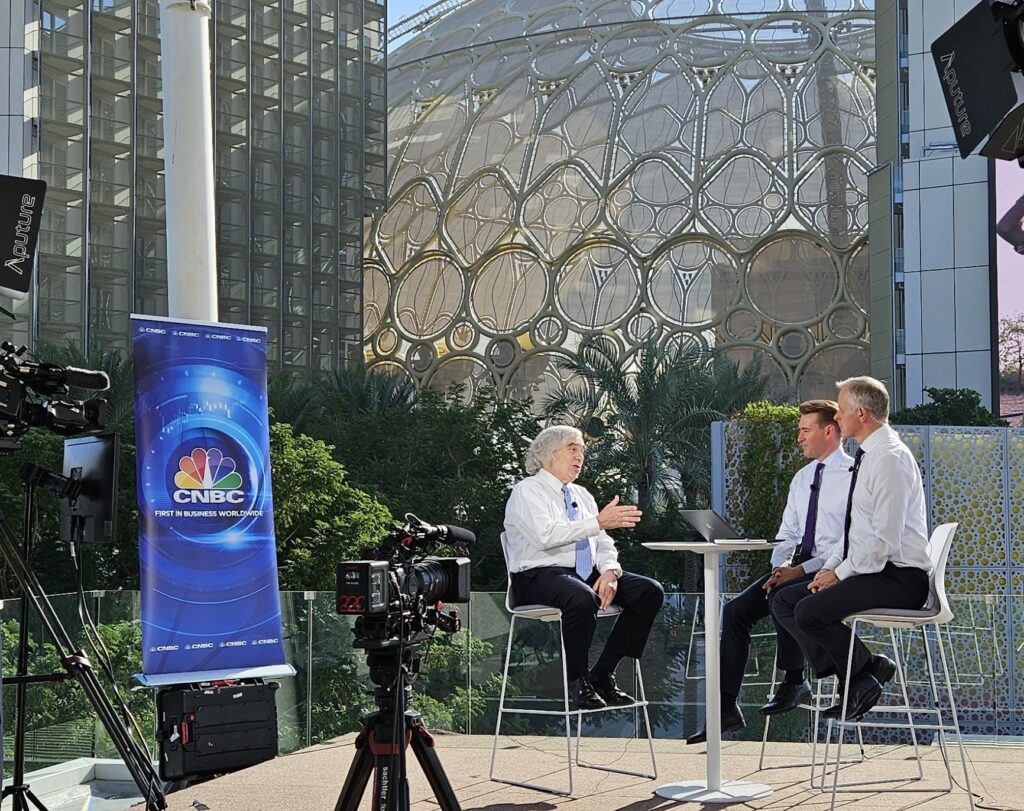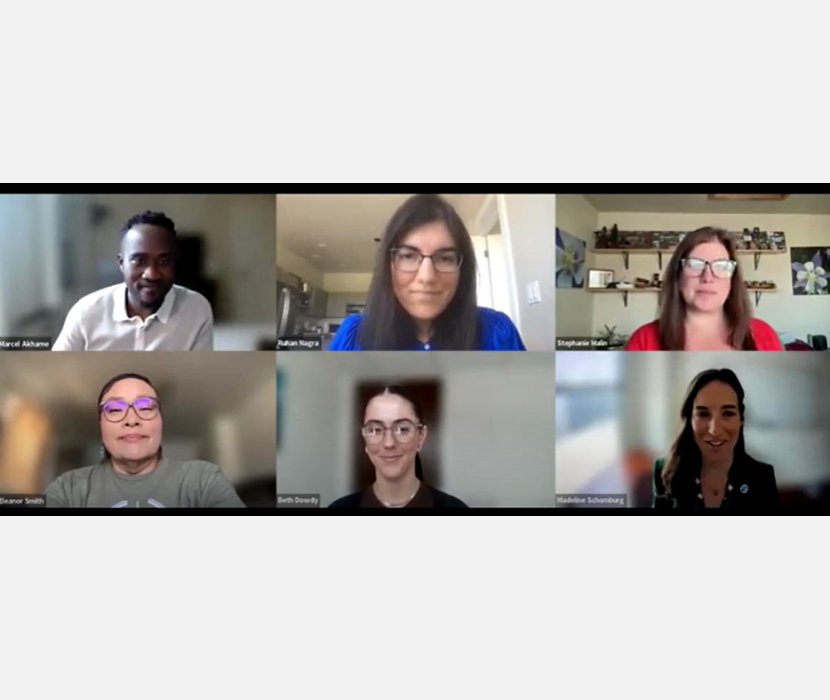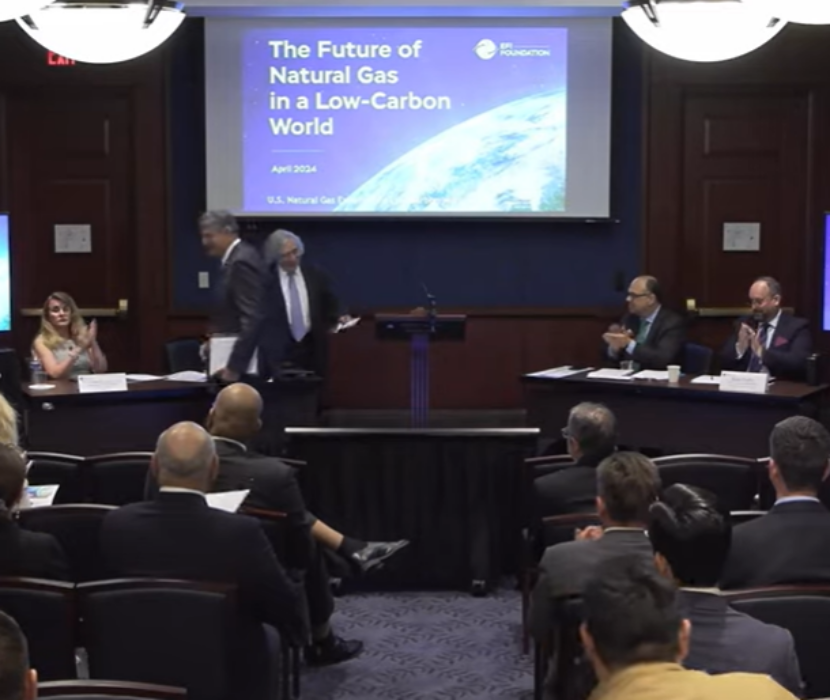
In a CNBC interview at COP28, EFI Foundation CEO Ernest Moniz said he welcomes the involvement of oil and gas companies at the United Nations climate change conference (COP28). Ernest Moniz participated in various events at COP28 in Dubai, United Arab Emirates, and was interviewed by CNBC correspondents Dan Murphy and Steve Sedgwick on December 4, 2023.
Of oil and gas company participation at COP—including ExxonMobil CEO Darren Woods—Moniz said, “I welcome this participation. … I’ve always been of the mind that the fastest that we can go to address climate will be by building the biggest coalitions,” and he continued, “and those coalitions have to include the incumbent energy companies, and specifically the oil and gas companies.”
Moniz said the president and leadership of COP are “in a position to broker those kinds of coalitions, and they have,” as they bridge renewables to fossil fuels.
During COP28, more than 50 companies—including national oil companies Abu Dhabi National Oil Company (ADNOC) in the United Arab Emirates and the Saudi Arabian Oil Group (ARAMCO)—joined the Oil and Gas Decarbonization Charter and pledged to reach net-zero operation emissions and phase out methane by 2050.
“That’s a first to have the national oil companies buying into net zero,” Moniz said. He added that action is required beyond making a pledge, but making this pledge was one of many important steps forward.
Moniz noted another positive step: more than 20 countries signed a pledge to triple nuclear power by 2050 to help reach climate goals.
“It wasn’t long ago, … the word nuclear could not be pronounced in polite company,” Moniz said. “Now it’s being understood that we need to throw everything at this problem.”
As part of this progress of talking about nuclear power and also carbon capture and sequestration (CCS) at the annual climate conference, the EFI Foundation released reports on both developing nuclear power industries and CCS hubs at COP28.
Moniz said he likes that COP28 is “addressing problems across the board” and has been “more pragmatic” than previous conferences.
“I think the world is coming around to the idea that we have to get off our soap boxes,” he said, “and just talk about what is it that helps lower—or at least mitigate—additions of greenhouse gases in the atmosphere.”
Moniz said it is not talked about enough that decarbonization will vary based on region and available resources. In Sub-Saharan Africa, for example, development (including increasing energy access for its people) will need to be a top priority while trying to make energy systems as clean as possible.
“We have to expect the pace and the methods of decarbonization to be very different in different geographies,” he said.
For example, the role of natural gas in the clean energy transition will differ in regions like Sub-Saharan Africa compared to other regions. He said “There has been inadequate attention about the role of natural gas in the transition. We all know it is going to have a major role, but we often fail to emphasize is, that role will be differentiated in substantially different geographies and different levels of development.”
Due to these differences in resources and development needs, Moniz said “phase down” of fossil fuels, as opposed to “phase out,” made the most sense for agreements at COP.
Watch the CNBC interview.
– Callyn Bloch, Communications Fellow, with contributions from Alicia Moulton (Deputy Director of Communications)
(Share this post with others.)




